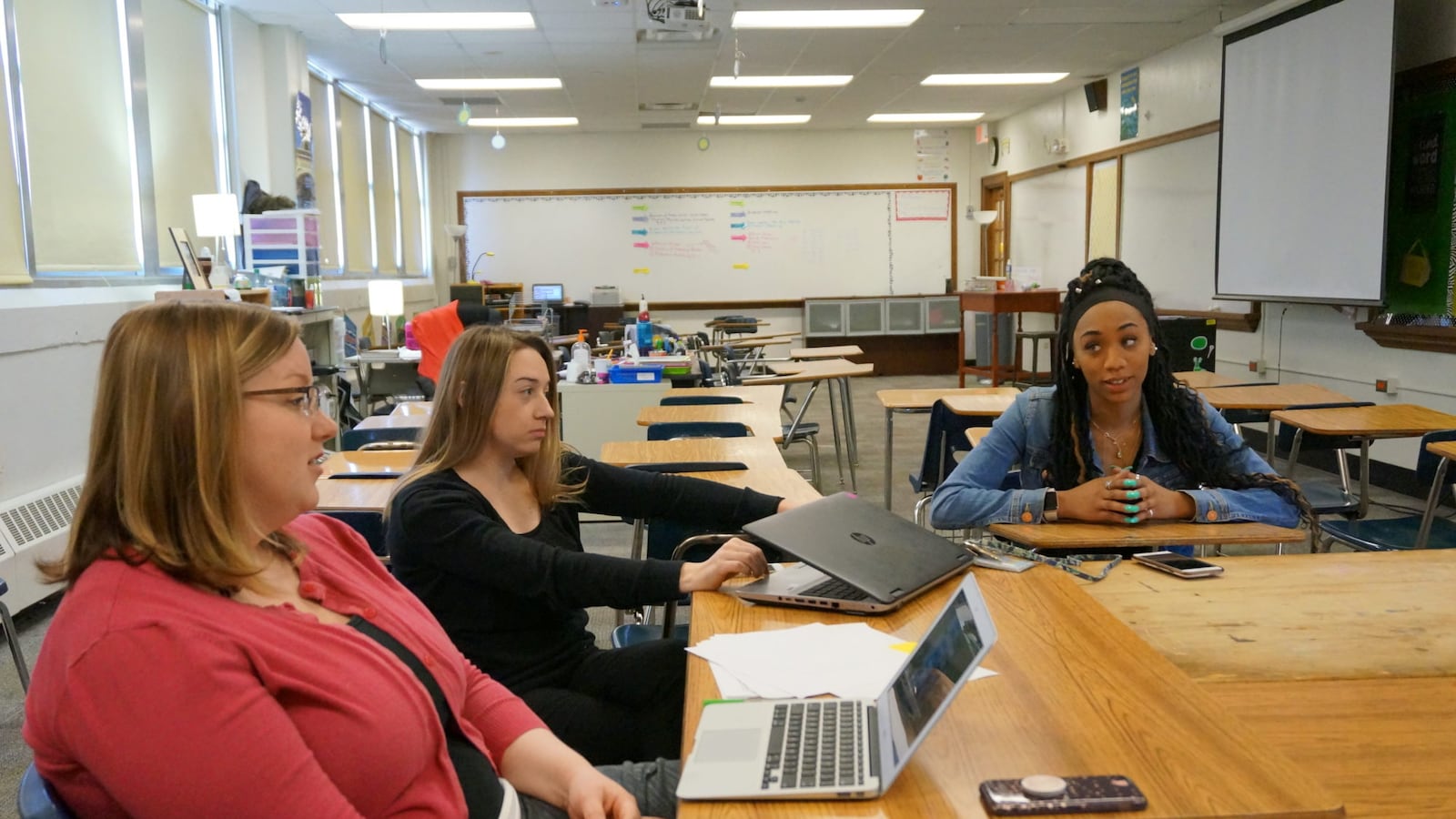When high school teacher Katie Knutson mentored her first student teacher about five years ago, she got an email from Indianapolis Public Schools and a few visits from university staff. But mostly, she was on her own.
“The last time I had a student-teacher, I didn’t have any district support,” she said.
Knutson wasn’t alone in needing more support. Across the district, student teaching has traditionally been an informal process without much organized support. Teachers who volunteered to take on college students have sometimes gotten stipends from the universities those students attend, said Mindy Schlegel, the head of human resources for Indianapolis Public Schools. But the district did little to ensure student teachers or their mentors had a good experience.
This year, Schlegel says, that’s changing. Knutson is part of an Indianapolis Public Schools effort to reshape student teaching so that teachers who work with college students are better prepared and supported and those students have a better experience.
“We just want to create a community for our host teachers and our student teachers to create a solid foundation for student teachers,” said Knutson, who is one of two senior teacher leaders helping to run the program.
More than 100 teachers chosen through an application process will participate in a new, organized teacher training program. As clinical prep teacher leaders, they are paid at least $1,000 per semester to take on student teachers. Unlike in prior years, student supervisors also have regular meetings with other teacher leaders, and they have experienced educators they can call on for support.
That will hopefully create a positive cycle, where universities think of the district as a good placement for students — and those students will apply to work there when they graduate, Knutson said. As it stands, fewer than 20 percent of students who teach in Indianapolis Public Schools are hired by the district after they graduate, according to district data. This semester, the district has about 170 student teachers, and it expects to have more than that in the spring.
“It’s no secret that IPS has a teacher shortage,” Knutson said. “Why not create a system where we are fostering and creating a foundation for student teachers to grow and become great teachers and then bring them back?”
Knutson, who has taught at Crispus Attucks High School for about seven years, is paid a stipend of $7,000 per year to help lead the effort. In addition to mentoring students, she and the other senior leader plan the program and advise other clinical prep teachers.
The new, formalized approach to student teaching is just beginning, said Knutson, but in addition to supporting teachers, the program is piloting a series of trainings for the students who participate.
“We worked with our higher ed partners to develop competencies of what we would want the host teacher to have and very clear expectations on their role with that student teacher,” Schlegel said.
The clinical prep program is part of a broader effort to increase leadership opportunities for teachers in Indianapolis Public Schools. Over the past two years, the number of teachers in leadership positions through programs like opportunity culture has jumped from about 50 to 175.

